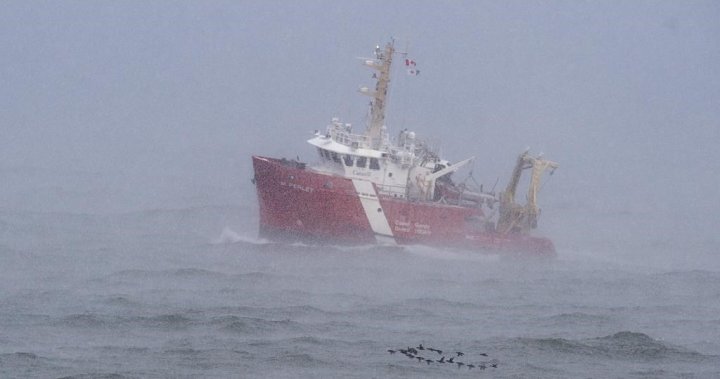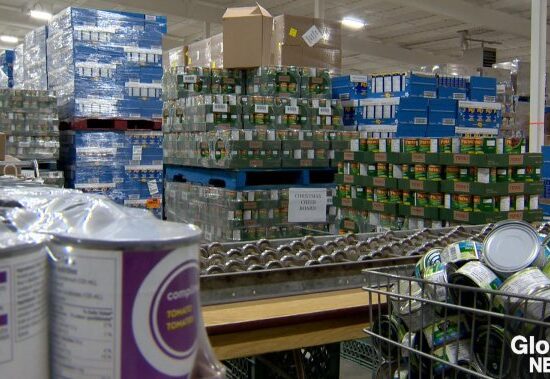
The Transportation Safety Board of Canada says in a report released today that a scallop dragger that sank off Nova Scotia should have been tested for stability, given major changes made to the boat.
The 2020 sinking of the Chief William Saulis, which resulted in five deaths, prompted an investigation that found a stability assessment would have likely given the crew knowledge of the risks they faced.
The report says Yarmouth Sea Products Ltd. had added a heavy A-frame to the top of the dragger, a protective stern plate at the back of the boat, and installed covers to close the holes that allow water to flow off the deck.
On Dec. 15, 2020, the modified vessel capsized in the Bay of Fundy during a gale as it returned to its home port in Digby, N.S.
Aaron Cogswell, Charles Roberts, Daniel Forbes, Geno Francis, Leonard Gabriel and Michael Drake were the crew onboard the Chief William Saulis.
Facebook, Background photo courtesy of Katherine Bickford
The report says it had 2,700 kilograms of scallops stacked almost two metres high on its deck, which likely contributed to the boat’s instability by sliding around and potentially blocking drainage.
The bodies of Eugene (Geno) Michael Francis, Aaron Cogswell, Leonard Gabriel, Dan Forbes and captain Charles Roberts were never recovered after the 17-metre vessel went down off Delaps Cove.
The body of crew member Michael Drake was swept up on the rocky shoreline.
Transport Canada has said a stability assessment wasn’t required when it conducted an inspection in April 2017 — three months before regulations requiring assessments for vessels with major modifications came into effect.
This report by The Canadian Press was first published March 22, 2023.
© 2023 The Canadian Press
















